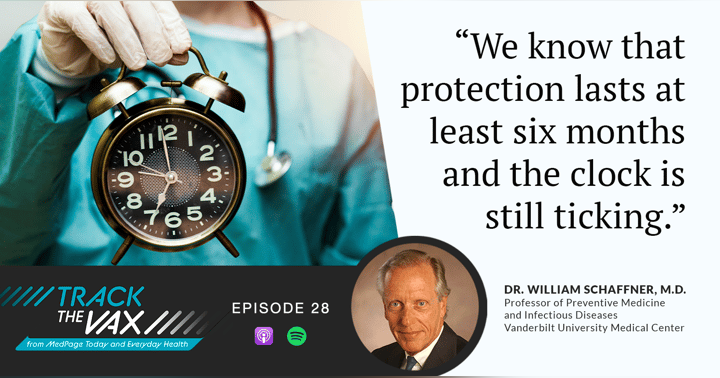Tracking Past the Vax: How they Ensure Safety After Approval.

We’ve talked about the vaccine studies, how they conduct them, who is in them and what is required for that coveted Emergency Use Approval.
But what happens next?
How do the pharmaceutical companies, the governmental agencies, and your own medical professionals ensure the vaccine is safe once it is distributed to millions of people every day?
“There might be rare side effects that, you know, even in a study of 20 or 30,000 people may not have happened. Or may have happened a very small number of times. But then when you start giving the vaccine to tens of millions or hundreds of millions of people, those kinds of side effects can emerge,” Dr. Aaron Kesselheim, Professor of Medicine at Harvard Medical School, Brigham and Women's Hospital explains in this week’s episode.
There are three main pillars of post-market surveillance.And while all three of them are being utilized, Dr. Kesselheim warns it “could be going better.”
“We are seeing a lot of spontaneous reporting. And we are seeing a lot of, you know, local institutions keeping track of people who receive vaccines and sort of many registries in a sense. So far in the U.S. we've only had vaccines available through Emergency Use Authorizations. We haven't yet had those kinds of formal post-approval studies that have been, you know, developed and designed for these trials. So we haven't really seen that yet,” he explains.
Part of the reason why has to do with the effort to get as many shots in arms as possible, but also means some of the more rigorously collected data may be following through the cracks.
“If the public trusts the FDA and the public trusts the CDC and the public believes that they're being spoken to in a clear and truthful way, then the public will be more likely to listen to the messaging that they get from those sources,” he said. “ If that doesn't happen, then I think that unfortunately, a lot of people will then turn to the internet or to their crazy uncles and be more likely to listen to them.”
He also addresses:
- The different ways that the post-market vigilance related to vaccines could be optimized.
- What you should be on the look-out for when it comes to reactions.
- And how you can report a reaction yourself. Explaining: “There is not a timeline...the public can report adverse events. You don't have to necessarily go through your doctor. Or go through the pharmaceutical company.
Listen along with us on: Apple Podcasts , Spotify, or wherever you listen
